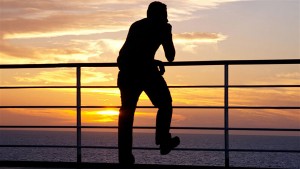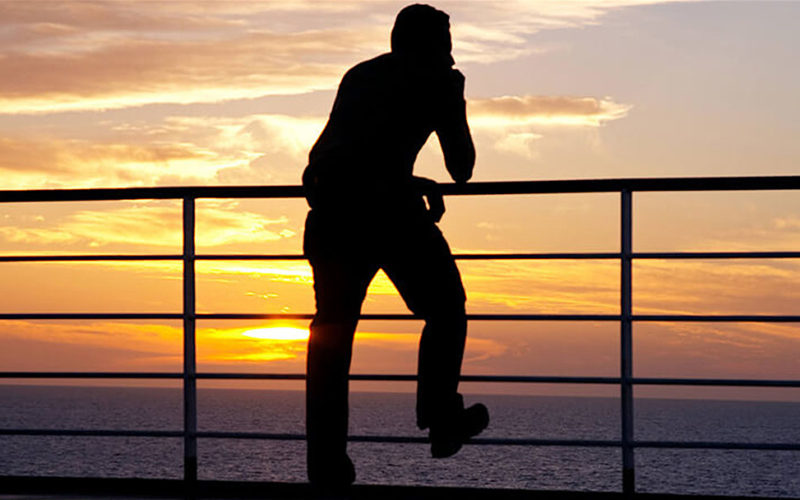
Mariners across the United States are being asked to take a confidential mental health survey as federal agencies, vessel operators, maritime unions and other industry stakeholders strive to identify the most pressing needs during the pandemic and determine what can be done to alleviate them.
The online survey, which is ongoing through May 31, can be completed in 10 minutes. It includes questions regarding pandemic-related stressors such as restricted ability to get off vessels, pre-boarding quarantines, vaccine hesitancy and increased workloads when a crewmember is ill or quarantining. The survey also includes questions that screen for post-traumatic stress disorder (PTSD), depression, anxiety and suicidal thoughts.
“The hope is that we can identify pressure points — both related to the pandemic and in general — and create change for the vessels,” said Dr. Marissa Baker of the University of Washington School of Public Health. She is administering the survey for a team led by the U.S. Committee on the Marine Transportation System COVID-19 Working Group.
More than 1,200 mariners completed the survey in the first six weeks after it was released in mid-January, with many participants also emailing Baker personally.
“Often, with worker health and safety, the best ideas come from the workers themselves,” she said. “I’ve already received emails from mariners who have so many ideas about what needs to be done and what could be done. Connectivity is a big one — without access to the internet and telephone to be able to connect with family and friends, there’s isolation and feelings of disconnection.”
Catie Gianelloni, a licensed mariner and instructor at the Maritime Institute of Technology and Graduate Studies (MITAGS) — and the wife of a mariner — represents the nonprofit Ship Operators Cooperative Program on the survey committee initiated by the Centers for Disease Control and Prevention.
“We all know there’s a problem, but I’m not sure anybody knows how big it is or how deep it is,” she said. “Some people handle the stress well — until they don’t. This is an opportunity to give them a voice.”
While many mariners report feelings of isolation related to infrequent internet or phone access, others on more connected vessels feel the downsides of connectivity.
“Knowing everything that is going on at home during a pandemic and not being able to do anything about it is a new stressor,” Gianelloni said.
Don Marcus, president of the International Organization of Masters, Mates & Pilots (MM&P), said that the pandemic and related anxieties — including diminished opportunities for shore leave — have made this “probably the worst time to go to sea” since World War II.
“There is still a great deal of anxiety about whether or not your relief will actually show up and whether crew change will be possible,” Marcus said. “Crews are small and workloads are heavy. Fatigue and anxiety build up.”
Take the survey
To participate in the confidential mental health survey, go to https://redcap.link/mariners. You must be:
1) A U.S. citizen or permanent resident;
2) A merchant mariner who works on U.S. vessels.

